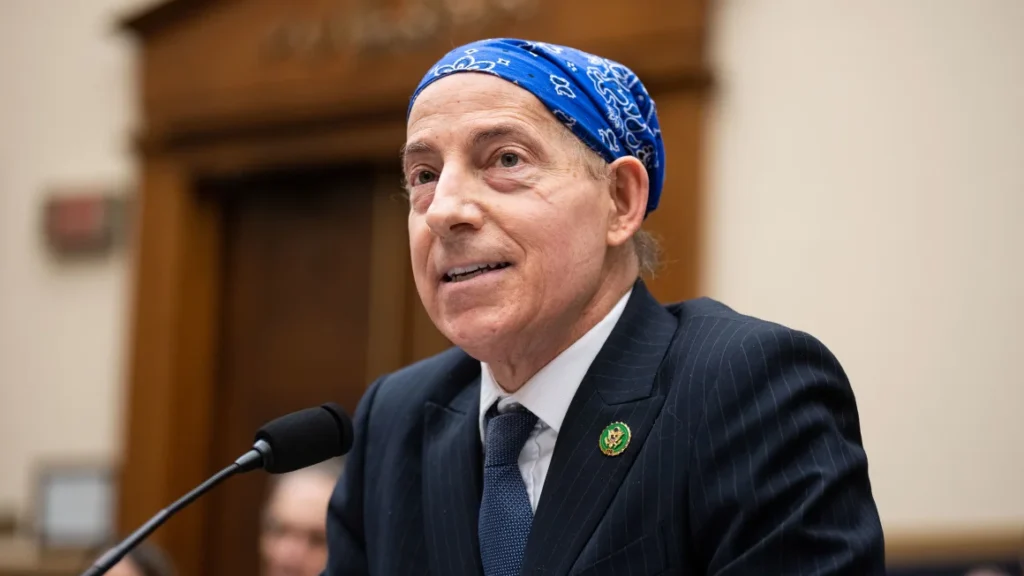House Democrats have launched an investigation into allegations that former President Donald Trump accepted $10 million from the Egyptian government during his 2016 presidential campaign and whether allies within his administration later obstructed an inquiry into the matter.
The investigation was initiated by Rep. Jamie Raskin (D-Md.), the ranking Democrat on the House Oversight and Accountability Committee. Raskin’s inquiry follows a report by The Washington Post that detailed how the Egyptian government allegedly transferred $10 million shortly before Trump made a last-minute injection of the same amount into his campaign in the final days leading up to the 2016 election.

The Post report also revealed that after Trump took office, the Department of Justice (DOJ) began investigating whether this payment violated laws prohibiting foreign contributions to U.S. political campaigns. However, the probe reportedly stalled due to concerns raised by then-Attorney General William Barr.
In a letter addressing the issue, Raskin highlighted the seriousness of the allegations. “This detailed news report has also triggered serious speculation that your handpicked political appointees at the U.S. Department of Justice, including Attorney General William Barr, subsequently blocked efforts by career prosecutors and agents of the Federal Bureau of Investigation (FBI) to investigate the political and financial corruption that has been described,” Raskin wrote. He added, “Surely you would agree that the American people deserve to know whether a former president—and a current candidate for president—took an illegal campaign contribution from a brutal foreign dictator.”
The Post reported that the DOJ’s investigation began after discovering a withdrawal from an organization linked to Egyptian intelligence just days before Trump’s inauguration in January 2017. Barr reportedly asked a Trump-appointed U.S. attorney to review the classified intelligence on the matter, concluding there was insufficient evidence to pursue the case. This decision followed months of internal disputes, with Barr allegedly directing FBI Director Christopher Wray to oversee agents who were “hell-bent” on tracking down Trump-related records.
Raskin has requested that Trump provide documentation about the source of his campaign loan and whether it was repaid, directly asking if he received any money from the Egyptian President or government.
In response to these allegations, Trump’s campaign has strongly denied any wrongdoing. “This is textbook Fake News. The investigation referenced found no wrongdoing and was closed. None of the allegations or insinuations being reported on have any basis in fact,” the campaign stated, dismissing the Post’s reporting as a product of “Deep State Trump-haters and bad faith actors peddling hoaxes and shams.”
The timing of Trump’s loan has also raised questions, particularly since earlier in 2016, Deutsche Bank—one of Trump’s few remaining lenders—had refused his request for additional credit. Raskin noted this timing as “especially notable” given the financial constraints Trump faced at the time.
During his presidency, Trump maintained a positive relationship with Egyptian President Abdel Fattah El-Sisi, whom he referred to as “my favorite dictator,” and released military aid that had previously been withheld over concerns about human rights abuses.
The Egyptian government has downplayed the allegations, with Ayman Walash, director of the Egyptian government’s Foreign Press Center, stating that the investigation into Trump had been closed without charges. “It is inappropriate to comment or refer to rulings issued by the judiciary system or procedures and reports taken by Justice Departments” of other countries, Walash said in a statement to the Post.
This investigation comes amid broader scrutiny of the Egyptian government’s influence in U.S. politics, as seen in the recent prosecution of former Senator Bob Menendez (D-N.J.), who was convicted in a corruption trial involving Egyptian intelligence officials.






